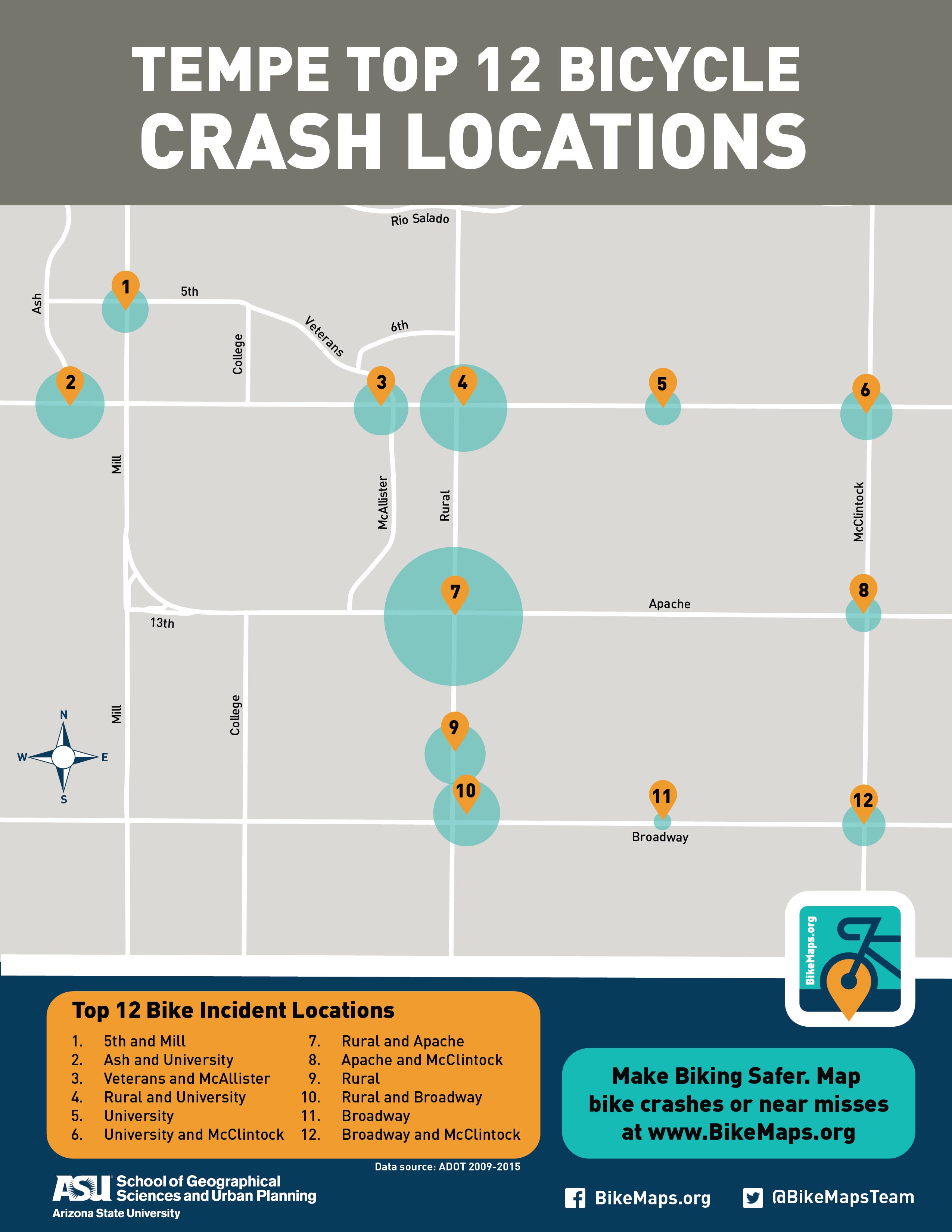How many bicycles pass through Arizona State University's Tempe campus on a daily basis? How about each year?
The answers to these questions have never been quantifiable, but that's about to change.
Earlier this month, a pair of bike counters were installed at the Forest/University and Apache/College cross streets (pictured above), changing the game for everyone involved in the transit community.
"Our students will use the data to do course work and projects on bicycling in the region," said Trisalyn Nelson, director of ASU's School of Geographical Sciences and Urban Planning at ASU. "It's important to monitor how many people bicycle in order to have an understanding of how changes in infrastructure and policy impact people's willingness to ride."
According to Nelson, bicycle ridership rates are up 17 percent on the Tempe campus. The new counters will document those changes and the reasons that go along with it.
They will also make life easier on everyone involved in on-campus transit.
"The school purchased the counters, and ASU Parking and Transit Services helped install them," said JC Porter, ASU's assistant director of commuter services. "They will definitely help since normally that data is collected by volunteers who have to count the bikes by hand."
Outside of his work with the new counters, Porter also oversees all sustainable transportation resources made available to ASU students. This includes intercampus shuttles and carpooling efforts, discounted public transit passes and of course, biking.
For all of his efforts, he was recently named the 2018 Tempe Bike Hero, an award that will be presented by the Tempe City Council in February. He has also received the President’s Award for Sustainability and the International Parking Institute’s Emerging Leader of the Year award within the past year.
A safer campus, through technology and teaching
The newly installed counters are just one of ASU's current bike-related initiatives.
With some help from the city of Tempe, BikeMaps.org — a web-map founded by Nelson — released a handy guide to show the top 12 locations in Tempe where the most bicycle accidents occur. The guide was finished earlier this month and is a useful resource to decrease the number of bicycle crashes around ASU.
"BikeMaps provides an important tool for ASU students to understand bicycle safety," Nelson said. "It's a site where anyone in the world can map a bicycle crash, near miss or hazard. Most incidents go unreported, and we want to use the website to help the region make better decisions."
In addition to the counters and bicycle safety tips, Nelson and Porter aim to further studies in the area with a new partnership between the School of Geographical Sciences and Urban Planning and Parking and Transit Services.
A course in Campus Transportation Planning is slated to start later this year, with a projected start date of fall 2018.
"Students will have the opportunity to work on practical research questions that will help ASU support all forms of transportation," Nelson said. "We will study bike parking, bicycling and walking safety issues, investigate how and why bicycling to campus is on the rise and map the shadiest paths between buildings."
More information on the class will be released later in the semester.
Top photo: ASU Parking and Transit maintenance worker Clayton Brunetti digs a trench for wires that will connect in-ground sensors to a solar-powered sign showing the daily and annual count of bicycles near the intersection of Apache Boulevard and College Avenue. Photo by Charlie Leight/ASU Now
More Environment and sustainability

Creating a road map to a balanced planet
When Greg Asner looks out at the world from one of the countless locales he’s visited through his work mapping the planet’s coral reefs and coastal forests — he’s been all over, from the Brazilian…

ASU's water conservation efforts in Tempe make a big impact
A pair of Arizona State University landscaping projects are making a significant impact in the Valley and have dramatically transformed each site into a beacon of sustainability thanks to the…

Saving the environment to save ourselves
Saving the environment.At Arizona State University, that's not just a trendy slogan. From water insecurity to wildfire awareness to cleaning pollutants in urban fishing waterways, ASU is…



